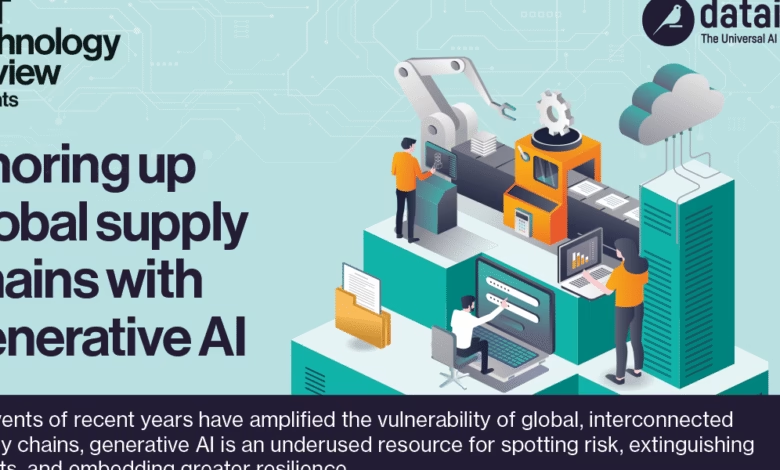Boost Global Supply Chains with Generative AI

▼ Summary
– Supply chains have faced multiple disruptions in the last five years, including the 2021 Suez Canal blockage, which halted $9.6 billion in daily goods.
– The Suez Canal blockage lasted six days and affected 30% of global container traffic, highlighting supply chain vulnerabilities.
– Recent disruptions have prompted 86% of CEOs to prioritize resilience in their supply chains.
– Generative AI is now being used to identify risks and solutions to mitigate future supply chain threats.
– The article was created by human writers and editors, with AI tools only used in secondary production processes under human review.
Global supply chains face unprecedented challenges, but generative AI offers innovative solutions to build resilience and efficiency. Over the past five years, disruptions like the 2021 Suez Canal blockage, which stalled $9.6 billion in daily trade, have exposed vulnerabilities in logistics networks worldwide. These events have forced businesses to rethink their strategies, with 86% of CEOs now prioritizing supply chain resilience as a critical focus area.
Generative AI is transforming how companies anticipate and respond to disruptions. By analyzing vast datasets, this technology identifies potential risks and suggests actionable strategies to mitigate them. Unlike traditional methods, AI-driven insights enable faster decision-making, helping businesses navigate bottlenecks, optimize routes, and reduce downtime. The ability to simulate scenarios and predict outcomes gives organizations a competitive edge in an unpredictable market.
Beyond risk management, AI enhances operational efficiency by automating repetitive tasks and improving demand forecasting. This reduces waste, lowers costs, and ensures smoother coordination across suppliers, manufacturers, and distributors. As adoption grows, companies leveraging these tools are better positioned to withstand future shocks while maintaining seamless operations.
The shift toward AI-powered supply chains reflects a broader trend of digital transformation. Businesses that embrace these advancements gain not only resilience but also the agility to thrive in a rapidly changing global economy. The potential for generative AI to revolutionize logistics is just beginning to unfold, offering a glimpse into a more connected and responsive future.
(Source: MIT Technology Preview)





